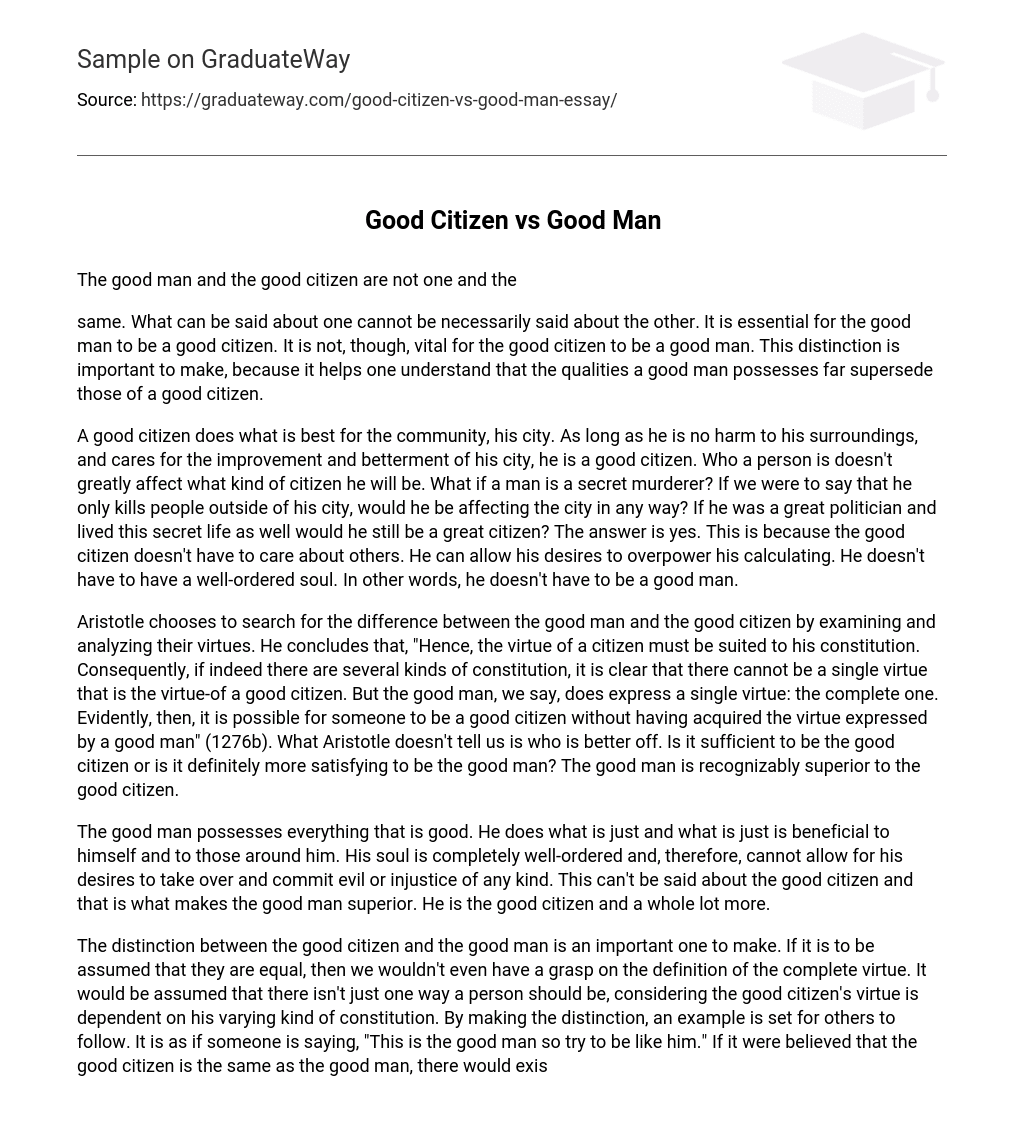The good man and the good citizen are not synonymous.
The two are not equivalent. The good man must also be a good citizen, but it is not necessary for the good citizen to be a good man. It is crucial to recognize this distinction because it emphasizes that the qualities of a good man outweigh those of a good citizen.
A good citizen prioritizes the well-being of his community and city, ensuring that he doesn’t cause any harm to his environment. Additionally, he actively works towards the advancement and enhancement of his city. It should be noted that a person’s character does not significantly determine their ability to be a good citizen. Consider an individual who is secretly a murderer; if they only commit acts outside of their city, does it have any impact on the city itself? Furthermore, even if this person is an esteemed politician, maintaining their secret life, they can still be considered a great citizen. This is because being a good citizen does not necessarily require caring for others. It is possible for one’s desires to overpower logical reasoning, and a well-ordered soul is not a prerequisite. In simpler terms, being a good man is not a requirement to be a good citizen.
Aristotle investigates the disparity between a good man and a good citizen through an examination and analysis of their virtues. He concludes that the virtue of a citizen must be in accordance with their constitution. Therefore, if there are multiple types of constitutions, there cannot be a single virtue that encompasses all good citizens. However, the good man possesses a singular virtue, the complete one. Hence, it is conceivable for someone to be a good citizen without acquiring the virtue exhibited by a good man (1276b). Aristotle does not disclose which is more advantageous – being a good citizen or being a good man. The superiority of the good man over the good citizen is evident.
The good man has all that is good, acts justly, and this benefits both himself and others. His soul is well-ordered, preventing him from succumbing to desires and committing evil or injustice. In contrast, the good citizen may not possess the same qualities, making the good man superior. He embodies the qualities of a good citizen and much more.
The differentiation between the good citizen and the good man is crucial. If we were to assume they are the same, we would lack understanding of complete virtue. It would suggest that there is no singular ideal way to be, given that the good citizen’s virtue depends on their individual constitution. By establishing this distinction, we provide an example for others to emulate. It is akin to saying, “Strive to be like this good man.” Believing that the good citizen is equivalent to the good man would result in a proliferation of injustice globally.





